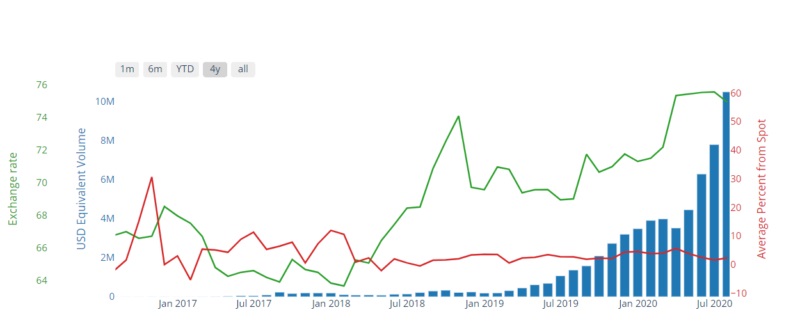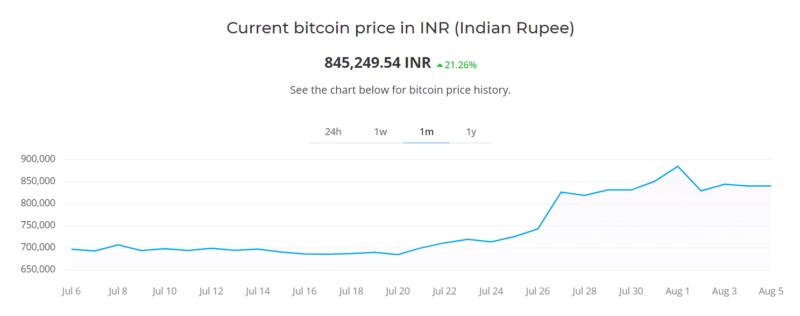Financial freedom is one of the most significant values among cryptocurrency holders. However, many people seem to think that “regulation” is the boogeyman under their crypto beds coming to take their freedom away. In reality, cryptocurrency regulations are put in place to help reduce risk and foster broader adoption in the long run.
Early adopters often shun government interference, thinking that they had good reason. As cryptocurrencies continue to mature in their now 11-year run, we’re starting to see how regulations can actually help the long-term digital assets goal.
How governments can affect crypto prices
To protect its citizens from potentially being scammed or participating in illicit activities, there are a couple of things a government can do:
- Regulate the price of assets like fiat currencies. By doing so, the buying and selling actions of users are limited.
- Saddle specific cryptocurrencies by constantly throwing regulations at them. By doing this, they control the excessive enthusiasm people have, effectively creating ripple effects in a cryptocurrency’s price.
- Impose controls on cryptocurrency, limiting the access people have to it. In turn, the assets become scarce.
Although these are specific things regulators can do to affect Bitcoin value and other cryptocurrencies, they can also fail. Because cryptocurrencies aren’t tied to particular countries, it could take a lot of coordination among economies to pull this off. The varying interest in cryptocurrencies among countries can complicate things even further.
The psychological aspect
The cryptocurrency market has often been referred to as the “wild west,” and with good reason. The decentralized nature and power structures (rather the lack thereof) of cryptocurrency can cast a lot of psychological impact on investors.
Many investors may view cryptocurrency regulations as tactics that stunt excessive growth, which results in massive moves on the investor’s part when new rules are announced. In response to regulations being announced, investors might rush off to buy or sell coins, creating wild swings in valuation.
For example, in 2018, South Korea was heavily contemplating banning or, at the very least, imposing heavy controls on their cryptocurrency market. When the word got out, the prices of most cryptocurrencies dropped. There was more than a 15% drop for bitcoin as well as double-digit losses for other cryptocurrencies such as Ethereum, Litecoin, and Ripple—all happening within hours.
However, the effects don’t always need to be negative. In that instance, when the South Korean government decided to take a more positive approach, upward momentum was created on the cryptocurrency markets.
Before this scenario ever happened in South Korea, cryptocurrency-embracing countries like Japan have helped push bitcoin into, what was then, historic heights.
A more recent example is India. When the country lifted the crypto ban last March 2020, we can attribute the rapid conversion of INR to bitcoin to their country’s bitcoin regulations.

Paxful.com Indian rupee (INR) Volume
USD Equivalent
Source: UsefulTulips.org
However, according to recent news, it might be possible for the government to implement another ban. This uncertainty can also be a factor that’s driving Bitcoin price and trade volume up.

How regulation can help crypto in the long run
As shown in the examples above, cryptocurrency regulations have the power to drive prices up and down. Knowing which way it will go can be extremely beneficial. Instincts will often tell us that regulations are stepping on the toes of what cryptocurrencies represent—a decentralized peer-to-peer cash system. However, it can also be said that the same regulations can help these digital assets flourish.
The worst part of today’s cryptocurrency market might be regulatory uncertainty. Look at it in the eyes of a new trader. Imagine not knowing how your coins will be taxed or if they’re even legitimate. In that case, the uncertainty can easily scare you away from the idea of ever trading at all. How do we get rid of that? One way might be cryptocurrency regulations.
As regulators shed more light on how they view cryptocurrencies, a particular level of certainty is achieved—taking away the fear of using or investing in digital assets. Other than eliminating uncertainty, here are a few ways cryptocurrencies might benefit from regulations in the long run.
The transition from purely speculative to a usable asset
Since there’s a lack of cryptocurrency regulations, the use cases of many cryptocurrencies are limited. Their applications are more theoretical than practical as of this moment, generally speaking.
As cryptocurrency projects determine the parameters to which they can operate (alongside their regulations), they can begin to offer big business solutions for existing problems—all without the fear of backlash from regulators.
Asset ownership can be more secure
If the regulations are clear enough, a control layer can be created for all cryptocurrency custodians and owners. This control layer can allow exchanges and marketplaces to reject, freeze, or even reverse any suspicious transactions.
A hazy long-term, promising future
There are many more benefits regulation can bring to the cryptocurrency space than just the ones mentioned above. However, despite the amount of attention the cryptocurrency market receives from regulators, there’s still a lot of debate on how to regulate them properly.
After all, cryptocurrencies are still in their infancy, even with them being around for over 11 years. Regulators have only just begun their thought process on how to restrict the most dangerous practices in this space. They’ve hit some bumps in the road, but they’re definitely on their way.
Let’s take the 2018 South Korea incident to measure how regulations impact the cryptocurrency space. Even with more recent examples like India’s Bitcoin price in INR, we can see that there can be a direct correlation between the two.
However, in this time of regulatory uncertainty, all we can do is remain vigilant for regulations that may or may not arrive. There are many benefits regulation can bring to this space, but we’ll have to think short-term for now. So, as always, let’s just live our lives one day at a time and keep our ears to the ground—who knows what will happen tomorrow?
Disclaimer: The content herein is not, and is not intended to be, legal, financial, investment, or other advice.